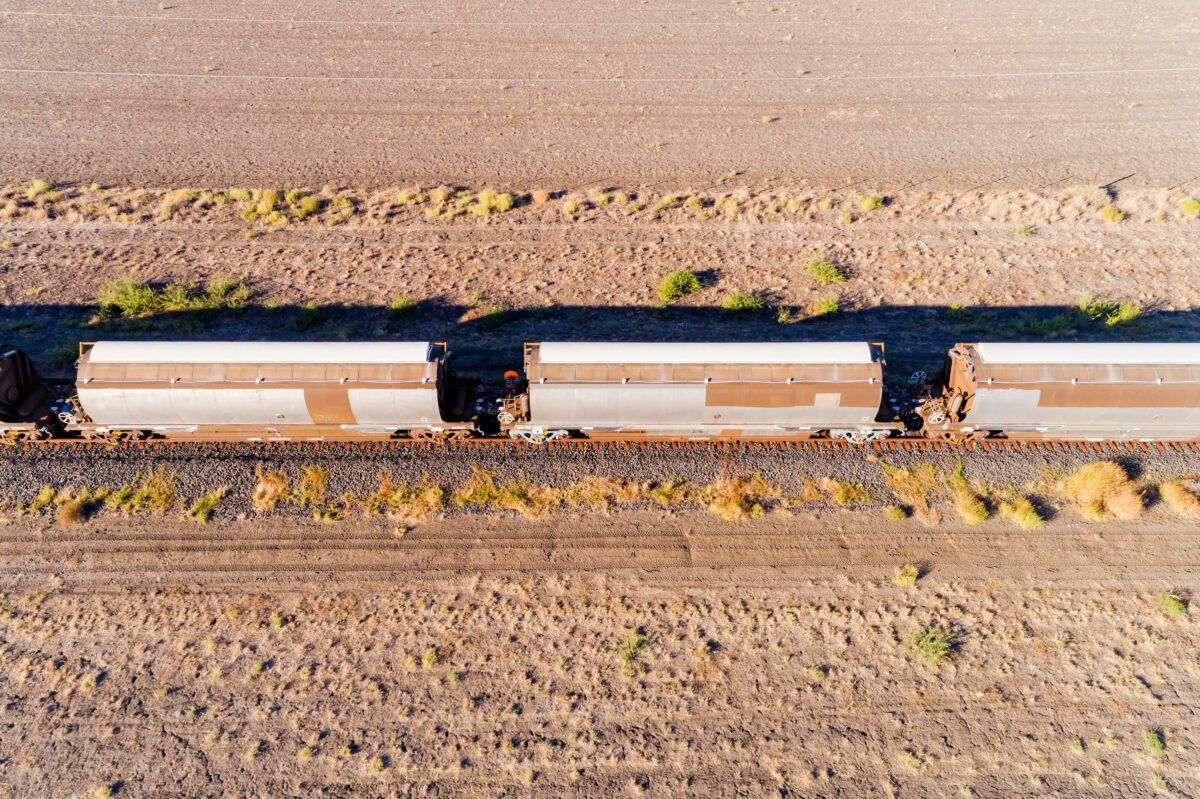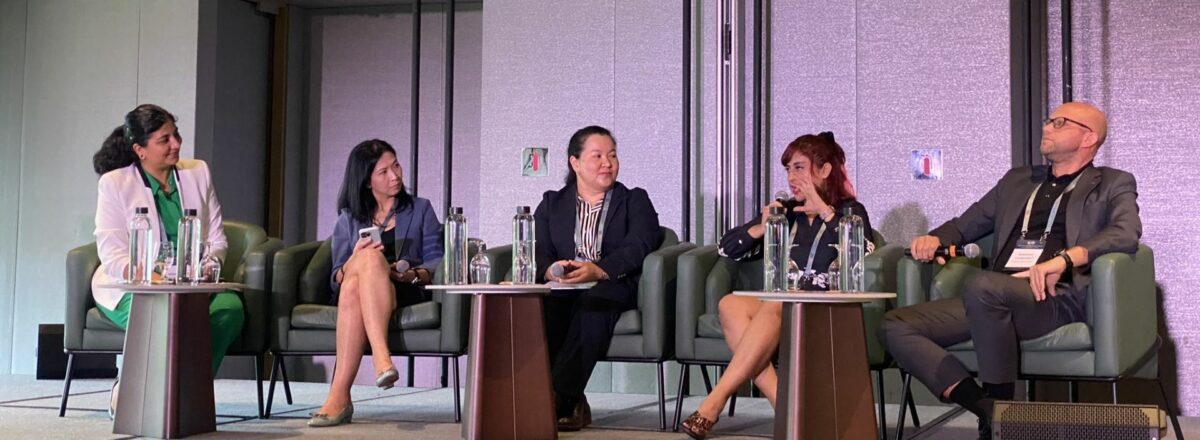The Carbon Market Institute (CMI) yesterday concluded its 6th Annual Carbon Farming Industry Forum, having hosted over 350 delegates and a series of robust discussions that on Day 2 focuses on the critical role and inherent value of co-benefits in in building social, natural and cultural capital across regional Australia and in Australia’s Pacific neighbours.
Day 2 heard speakers discuss a rapidly growing appetite for understanding and engaging with social and environmental co-benefit outcomes in Australia and our neighbourhood, and importantly, how these outcomes can be measured and valued.
“The carbon farming industry’s primary objective must be to drive large-scale emission reduction and carbon removal, in conjunction with industrial decarbonisation, however the additional value generated by the carbon supply chain for regional jobs, Indigenous benefits, biodiversity as well as drought and climate resilience will be crucial to sustainable investor and community support,” said John Connor, CMI CEO.
“Carbon farming is a key solution in the crosshairs of the biodiversity and climate crisis, but cannot be sustained without delivering benefits for communities and ecosystems that host it, here and in our region.”
“The Forum heard from international, federal state political leaders, businesses, academics, conservation and indigenous groups, all of which have a key stake in this growing market, and many of which are advanced in exploring the economic, social and cultural opportunities associated with carbon farming, beyond environmental outcomes and additional revenue streams.”
“This Forum highlighted challenges and opportunities for the carbon farming policy framework that at a federal level is approaching its tenth anniversary, but needs to be plugged into greater policy ambition. Key focus areas coming out of the Forum include an ongoing focus on integrity, stronger linkages to overall emission reduction and goals to reverse deforestation; improving data collection and measurement; better valuations of social and environmental benefits, and boosting capacity building and extension services.
“Ultimately, the carbon market will be judged on its ability to help accelerate and deepen agricultural and industrial emissions reductions and removals, as well as to drive finance to communities, such as Australia’s regional, farming and Indigenous communities. Despite recent challenges I have greater confidence coming out of this Forum that we can realise the potential that carbon farming can offer here and in our region,” he said.
Quotes from Day 2
Ken Henry, Chair, Australian Climate and Biodiversity Foundation and Wildlife Recovery Australia:
“Our present policy framework of putting a price on carbon is far from first-best, but its not useless. Especially because of its reliance on voluntary abatement commitments, there will always be doubt about whether it will do much to reduce Australia’s greenhouse gas emissions. But there’s growing acceptance that it does offer the possibility of doing something quite substantial to arrest the deterioration in our ecosystems and perhaps even to begin the long and difficult task of regeneration. It does this by facilitating the imposition of an implicit tax on environmental degradation.”
Gary Juffa MP, Parliament of Papua New Guinea, Governor Oro Province:
“The Managalas Plateau, PNG, where there are 360,000 hectors of forest, will be put aside for sustainable land management and potentially carbon trading.This is about rewarding the indigenous people, the custodians and stewards of these forested areas, for the amazing work they do in maintaining these areas. As to a regulatory framework, there isn’t one in PNG…[but it] should be a means by which we have a national register…whereby we know where all the custodians and stewards of the forest are, whereby we know who all those coming into this country are exactly, and whereby we will be able to hold them to account by a set of protocols that ensure they do the right thing by the world, by the people, by our nature.”
Gillian Mayne, Director – Land Restoration Fund, QLD Dept. Environment & Science:
“We recognise that it’s not just government who are interested in the co-benefit outcomes, investors are well behind us in wanting to understand the value of co-benefits from carbon as well. It’s a differentiator of carbon projects, it’s a way of seeing the quality beyond the carbon in a carbon project. We’re [also] looking for new potential co-benefits. One of those is a potential new co-benefit around flood resilience, which is emerging, but very topical and has extremely exciting potential for us.”
Ricky Archer, CEO, North Australian Indigenous Land & Sea Management Alliance:
“Indigenous communities are going to have an interest in this [carbon farming co-benefits], whether there’s a market or not, but out of all the sectors that we participant in, the most promising is the carbon industry sector. We want to support further Indigenous leadership in this sector.”
Sarah Clawson, Global Head of Investor Relations, New Forests:
“The blended finance model has two classes of investors, commercial investors [who are looking for commercial returns] and impact investors [who are willing to forgo some of their commercial return in order to fund impact activities around climate, communities, livelihoods and biodiversity]. This blended finance has attracted a lot of capital into the markets.”
Angela Hawdon, Business Development & Strategic Projects Manager, Bush Heritage Australia:
“Bush Heritage used to be an organisation that farmers didn’t engage with, now they are actively coming to us, asking us how they can improve their biodiversity outcomes, whether it’s through a carbon project, or through natural capital accounting, and trying to understand what it is they have on their properties, and how that can support production benefits.”
Michelle Gortan, CEO, Macdoch Foundation:
“People have accepted this knowledge gap for a really long time [natural capital on farms] as it is difficult to get this data, but if we can uncover what contribution nature makes to businesses, and we can quantify for farmers, and they can treat eco systems as a factor of production with their core farm production, then we think we are going to get a huge amount of interest.”
This year’s Carbon Farming Industry Forum has been held over two days, bringing together Australia’s carbon industry stakeholders to consider the latest developments and progress key actions of the Carbon Farming Industry Roadmap.
The Carbon Market Institute is the independent industry association for business leading the transition to net zero emissions. Its over 130 members include primary producers, carbon project developers, Indigenous corporations, legal and advisory services, insurers, banks and emission intensive industries developing decarbonisation and offset strategies. CMI’s policy positions do not necessarily represent the views of all CMI members.
If you would like an interview, please contact Thomas Hann on 0408880536 or via email: thomas.hann@carbonmarketinstitute.org



